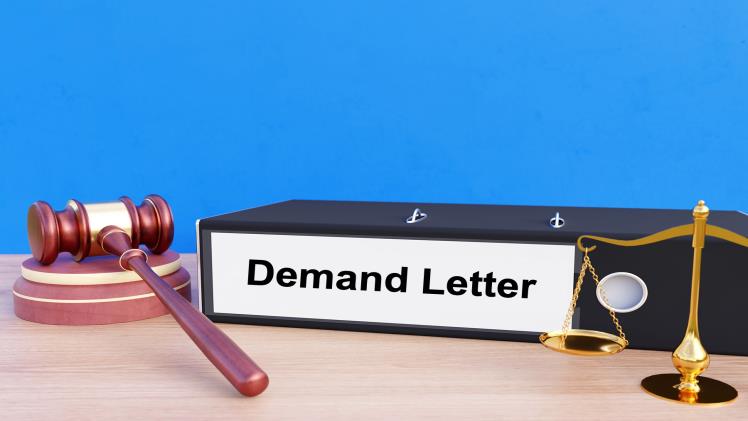Looking for ways to address a demand letter?
You’ve just received a demand letter, and panic sets in. Don’t worry, you’re not alone on this wild ride! From decoding legal jargon to strategizing your best response, this guide has got you covered. Let’s turn that potential headache into a manageable task by breaking down each step—acknowledging receipt to documenting every interaction. Ready to outwit that demand letter? Let’s dive in!
Key takeaways:
- Acknowledge receipt promptly, show professionalism, respect, manage deadlines.
- Review claims thoroughly, analyze legal jargon, prioritize points, check for inconsistencies.
- Gather evidence diligently, collect documents, identify witnesses, document findings.
- Consult with legal counsel for expert advice on legal matters.
- Evaluate settlement options critically, consider interests, impact on relationships, risks.
Acknowledge Receipt

This is like saying, “Hey, I got your love letter!” First, confirm receipt of the demand letter promptly. Thanks to snail mail, email, or carrier pigeon, the sender needs to know you got it.
Here’s why this matters:
- It shows you’re professional and serious.
- Keeps lines of communication open.
- Shows respect and builds goodwill.
- Allows you to manage deadlines effectively.
A simple message will do. Thank them for their letter, state the date you received it, and say that you’ll get back to them soon with a detailed response.
Review and Analyze The Claims
First, you’ll want to dig into the details of their demands. Consider it a detective mission, but instead of a magnifying glass, you’ve got your critical thinking hat on. Look at the specifics: What are they asking for? Why? And most importantly, is there any merit to their claims?
Next, inspect the legal jargon. It might feel like translating from Martian, but it’s crucial. If something’s unclear, highlight it. It’s like finding that one piece of a puzzle that doesn’t quite fit. Flagging these areas will help later.
Thirdly, check for any inconsistencies. Do their claims align with the facts as you know them? If they’re accusing you of stealing the cookie from the cookie jar, but you were miles away, that’s a red flag.
Also, consider the tone and urgency. Are they aggressive or just politely insistent? The attitude within the letter can hint at their negotiation style.
Finally, prioritize the points based on severity and impact. Not all claims hold the same weight. As they say, know which battles are worth fighting.
Gather Evidence
Start by collecting all relevant documents. Emails, contracts, receipts—everything. Think like Sherlock but without the hat.
Identify witnesses if applicable. Those who saw or heard anything related to the matter might be your golden ticket.
Photographic evidence is your friend. Snap it like a tourist at a landmark.
Keep a detailed log of all your actions and findings. Your future self will thank you.
Verify the authenticity of every piece. No one wants to find out their smoking gun is a water pistol.
Make a list of any inconsistencies or inaccuracies in the claims. A well-documented rebuttal is a thing of beauty.
Consult With Legal Counsel
When you get one of those delightful demand letters, playing the lone ranger isn’t the best idea.
– First, they’re experts in legal jargon. While you might interpret a sentence four different ways, a lawyer can tell you exactly what it means—no guessing games.
– Second, they can assess the validity of the claims. Sometimes what looks like a mountain is just a molehill with a very good publicist.
– Third, your lawyer can help strategize. Do you admit fault? Deny everything? Counterclaim with a pie chart of how much you don’t want to pay?
– Finally, lawyers can prevent you from tripping over legal landmines. One wrong word and you might find yourself in deeper trouble. They’ll help you navigate the conversation like a pro.
In short, involving legal counsel isn’t just about the letter of the law; it’s about having a trusted guide who knows the terrain. Trust me, it’s worth it.

Evaluate Settlement Options
First off, grab some coffee because this step needs your focus. Take a look at the claims presented and assess them critically. Are they reasonable? Outrageous? Somewhere in between? Think of this like grocery shopping—double-check the prices before you splurge.
Next, consider your interests. Are you willing to negotiate, or is it more of a hard “nope” situation? You might find a middle ground that makes everyone less grumpy. If you can pay less instead of more, why not?
Money aside, consider the impact on relationships. Will a settlement help patch things up, or is this going nuclear anyway? Choose your path wisely.
Finally, think about risks. Years in court or a swift resolution? Sometimes biting the bullet now saves chewing on regrets later. Assess objectively, but don’t ignore your gut.
Draft a Formal Response
Start with a polite but firm tone. Acknowledge the claimant’s concerns; a little empathy never hurts. Then, clearly outline your position. You might think of it as telling your side of the saga, minus the dragons and wizards.
Be specific about which allegations you dispute and why. If there’s evidence contradicting the claims, mention it. But steer clear of oversharing—no one wants a novel.
Also, toss in any counterclaims if you have them. Two can play at this letter game.
Finally, outline the next steps. Offer to discuss the matter further or suggest a settlement if that’s an option. Keep it straightforward and professional. Office drama is best left for lunchtime gossip, not formal documents.
Negotiate Terms
When approaching the discussion, remember that flexibility is your best friend. Aim for a win-win, but be ready to bend like a yoga instructor at a retreat.
First, focus on the main issues. Sift through the demands and pinpoint which ones are negotiable. Not every mountain is worth the climb.
Next, throw in a sweetener. Offering a small concession can often yield big returns. It’s like giving a dog a treat before asking it to fetch.
Stay cool. Keep your emotions in check. Even if their demands make you see red, respond with calmness and clarity. A poker face and a warm cup of chamomile tea might help.
Lastly, put everything in writing. It’s not just for dramatic courtroom scenes; it’s for your safety too. You want a paper trail as thick as a Tolstoy novel, minus the existential angst.
Adhere to Deadlines
Time waits for no one, and neither does a demand letter. Missing deadlines can lead to unwanted consequences, like legal actions or losing negotiation power.
First, mark all deadlines clearly on your calendar. Bright red, maybe with some flames. It helps.
Second, set reminders a few days before the given deadline. Early bird catches the worm, or at least avoids a lawsuit.
Third, stay organized. Keep all documents, emails, and notes in one easily accessible place. If you’re still using post-it notes, consider upgrading.
Lastly, communicate proactively if you hit a snag. Asking for a deadline extension shows responsibility and willingness to engage. But don’t ask too often—they might think you just enjoy procrastination.
Document All Communication
Keeping a record of every email, letter, and even smoke signal (okay, maybe not those) exchanged can be a real lifesaver. It ensures you’ve got a paper trail that can be your best friend if things get dicey.
Imagine your future self, sifting through neatly sorted records, confident every twist and turn is in the mix. Here are some key points:
- Emails and Letters: Print and file them.
- Phone Calls: Note down dates, times, and key points.
- Meetings: Minutes or summaries, you name it.
- Receipts and Invoices: Keep ’em handy; they’re not just clutter.
This isn’t just good practice—it’s your shield and spear.
So, channel your inner archivist. You’ll thank yourself later.
